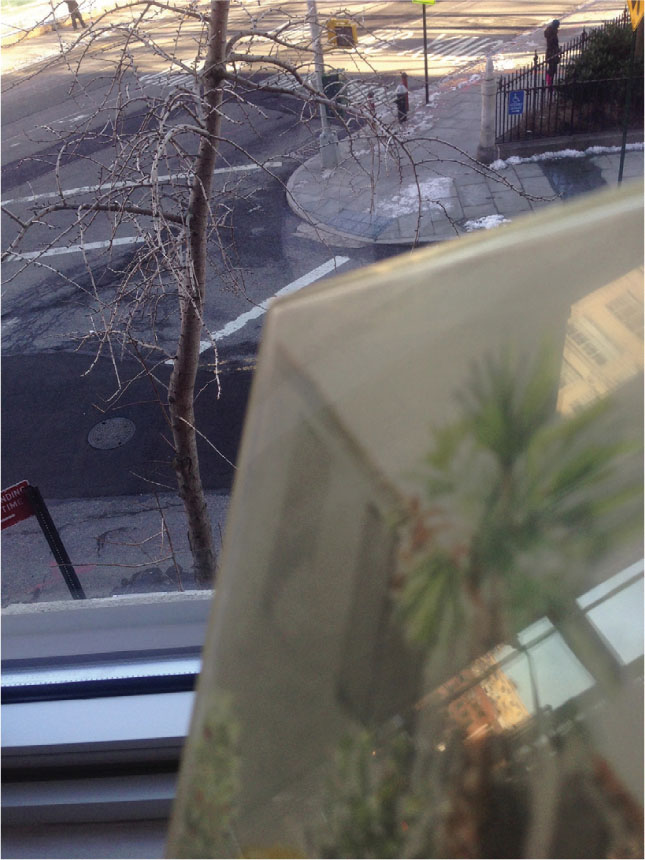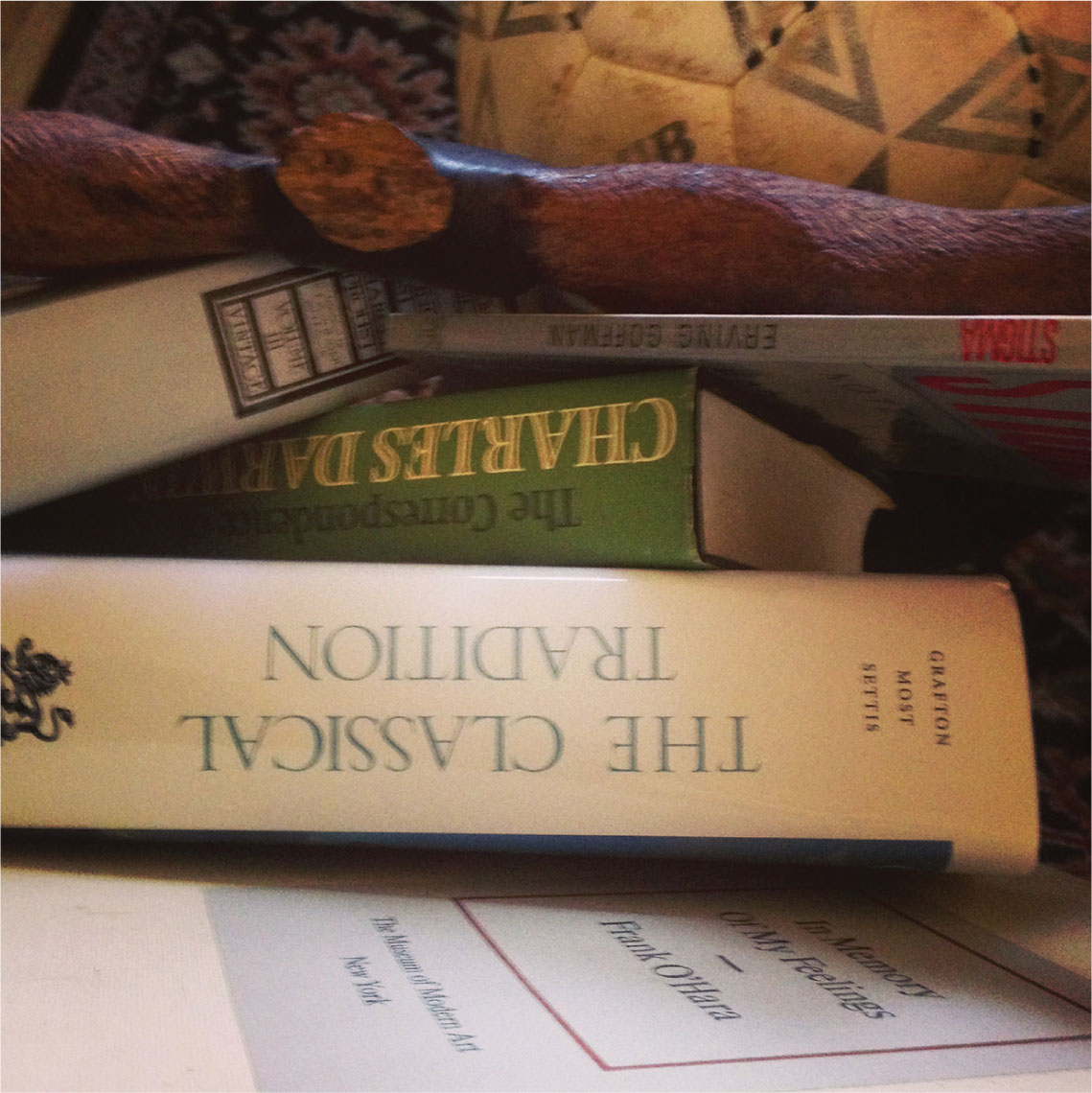4366. My Mother, and Welcome to Her!
There can be no question that [the] death of Proust’s mother
coincided with a profound “crisis,” but … the writing of In
Search of Lost Time started up only well after her death.
Roland Barthes, “The Work as Will,”
The Preparation of the Novel
I wonder if it could start up well before? Imagine preparing for your mother’s death by means of a record of some lost time, with her as its sometimes secret center. Imagine trying to make that record a matter of public record, something ready to remind you of your interest in the world, even after the passing of the person who first made you feel at home there. Imagine drawing on her Old School sense of Good Citizenship in the hope that her consolidated memory will keep your own sense of it in good standing, no matter what private catastrophe might interrupt it. (Speaking of Res Publica, the other night, my mom cut our usual conversation short, because she didn’t want to be even one percent late for the annual meeting of her condominium association. I discovered later that only nine righteous residents attended. I have yet to discover what, if anything, they discussed.)
Going on without our parents: it’s like those pilgrims in covered wagons my mother always claims as ancestors, cattle ranchers who wound up settling a long way from where they started. You’re from Pioneer Stock, though you’d never know it! she likes to say to me.
But the truth is that we both know that I do.
Note: Et cuius erant nisi tua verba illa per matrem meam, fidelem tuam, quae cantasti in aures meas? (S. Avgvstini, Confessionvm, “Liber II”).
4367. “difficult marvels”
The child upon
The bank, hands full of difficult marvels
James Merrill, “The Black Swan”
Sometimes the difficulties that keep your hands full all day change into marvels that make your heart ache at night. It’s like in a musical, when a quarreling couple, at the speed of sound, sing their way back to love.
That’s how you know there’s something like magic. That’s when you feel you’re somehow alive.
Note: “being a continued Allegory” (Edmund Spenser, “Prefatory Letter”).
but her bloom had vanished early
Jane Austen, Persuasion
I’ve never seen a bloom that vanished late. As far as I can see, everything around that could vanish, vanished sooner than I would’ve guessed—blossomings, bruisings, etc.
Maybe we’ll get to know each other better in a later life: our root causes, our random effects and our every variation in between. Who knows, maybe what’s vanished from us will return for us in some different form, weathered and wiser and gentler now, and ready to take us back.
And then you can finally tell him that, as far as you could see, he’d never really gone away in the first place.
Note: “I have loved none but you” (Persuasion).

4378. “I have now at last become a writer only”
F. Scott Fitzgerald, “Handle with Care,”
part 3 of The Crack-Up
At least I have at night—but that’s a big at least: maybe not a least as Big as the Ritz—but still, it’s something major (even if only from the mine of one mind).
Still, it’s something seriously new—an avenue found for an avenue lost: all the other driving that must be done by dawn has taken its engines elsewhere. (I know which Streets.)
That just leaves me writing.
Who?
The who without ignitions, trying to write to you.
Note: “still stream” (Keats, “Ode to a Nightingale”).
4383. Something Given from Somewhere Hidden
gather thee,—
Cresses that grow where no man may them see
Keats, “Endymion: A Poetic Romance”
I’ll bet you want to bring someone something like that. And you probably think that first you have to figure out where to find it.
But maybe it’s the other way around. Maybe first you really have to love someone enough to want to give her something hidden; love her enough to want to give her something still growing, from way-back-when, before you stand any real chance of ever really getting to that place where you find the thing you really want her to really have.
Note: “wild surmise” (Keats, “On First Looking into Chapman’s Homer”).
4384. “busy seeking for otters”
Coll and his dogs and Joseph were busy seeking
for otters, of which this island has many.
James Boswell, Journal of a Tour to the Hebrides
I love an island with many otters. At least I love it now. I love Coll and his dogs and Joseph. At least I love them now. I love people busy seeking while I am sleeping, or seeking elsewhere.
I love the golden intention, the pure soul of seeking for something that only the seeker can see. I love to remember my father with his friend, fishing for hours from a small boat on the bay in front of our house. (Did they ever catch anything?) I love to recall the exultation rising from a basement in Nyack, New York—the sound of two men succeeding in fixing something that meant nothing to anyone else.
Some kind of victory, someone upstairs murmured.
None sweeter, I said to myself at the time.
Note: “They are the Yea or Nay of that good for which men are enduring and fighting. In these delicate vessels is borne onward through the ages the treasure of human affections” (George Eliot, Daniel Deronda).
4386. “this penetrative suggestion of life”
It is in this penetrative suggestion of life.
Walter Pater, “The Poetry of Michelangelo”
You always worry about the wreckage that results from any kind of break-in, no matter how discreet the intruder—until you remember the other side of the same odd story: what damages, defines.
I mean, when was the last time you heard of a China Shop that didn’t have a Bull in it?
Note: “This charmed and temperate space” (Pater, “Michelangelo”).
4388. Making Up in the Middle of the Night
An actress … had been studying a part and
rehearsing it … suddenly, on the stage … beg[an]
to improvise, to speak lines not in the text.
Henry James, The Golden Bowl
(tense of the original modified)
The only salvation from darkness (or its daytime derivative, dullness) I’ve ever really known comes when someone says something to me that I wasn’t expecting her to say—something crazy or considerate enough to loosen and lighten up all the usual cordial and cool shows that draw us apart as much as they draw us together.
It’s the only time I ever really feel forgiven; the only time I ever really feel ready to start fresh.
He did something wrong somewhere along the line, my mother explained to me tonight, when I asked her to summarize why Moses, according to the story, wasn’t allowed to enter the Promised Land, after all those years wandering around in the desert.
Here’s the good news: turns out there’s always more than one line.
Note: “It should be possible to breach … expectancies … surprise is possible” (Harold Garfinkel, Studies in Ethnomethodology).
4390. “The scars were of different ages”
I saw three well-known trees; in front, the bark was worn
smooth, as if by the breast of … [a jaguar], and on each side,
there were deep scratches, or rather grooves, extending
in an oblique line. … The scars were of different ages.
Charles Darwin, “Buenos Ayres and
St. Fe,” The Voyage of the Beagle
There are good reasons for believing that Charles Darwin had a finer eye for the gradations of age than I do. I’m looking at one right here. See, in my book, all scars are more or less the same age: as soon as a scratch (or some deeper cut) becomes a scar, it all at once becomes no younger or older than any other scar. Once a wound has made a permanent mark, the particular date and duration of its actual birth and being fade into a common era, and put on the same uniform—like the free-agent pang that the team of pain can always recruit, as one of its own, for any given scrimmage.
And then, of course, there are all the smooth areas between the scars. Your hands are so smooth, a soccer player said to me this morning at breakfast. Then I showed her my callouses and then, naturally, she showed me the scars on her legs.
Those must have hurt, I said.
I don’t remember how she answered. There were too many girls saying too many species of quick, bright things to keep the lines of descent unconfused. The whole sunburst sequence blurred together in the fast, fixing, first light that starts the promise of any old, new day.
Note: “Monuments of unaging” (Yeats, “Sailing to Byzantium”).

